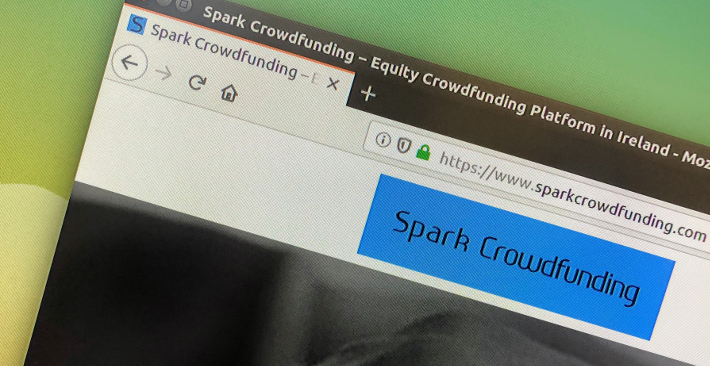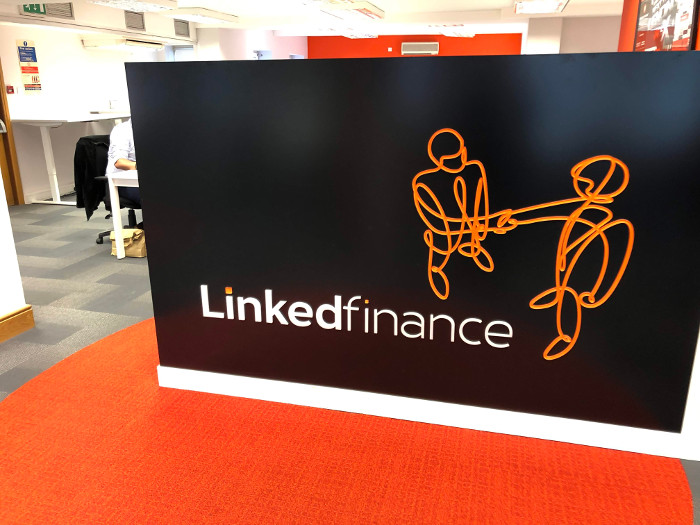Archive for 2019
Puff, Puff, Pass the Bill: House Approves Cannabis Banking Bill, Forwards it to Senate
October 10, 2019 Last month the House of Representatives passed the SAFE Banking Act, which provides for the lifting of red tape preventing cannabis companies from accessing banks and lenders.
Last month the House of Representatives passed the SAFE Banking Act, which provides for the lifting of red tape preventing cannabis companies from accessing banks and lenders.
Currently, such businesses are unable to make use of these financial services as regulators have put an outright ban on such dealings given cannabis’s federal Schedule 1 drug classification.
Having been approved 321-103, the House vote appeared bipartisan with almost half of the voting Republicans being in favor of SAFE. However, this is just the first step for the bill, as now it will be passed onto the Republican-held Senate, and then if it is approved there, the president’s office. With Republicans having demonstrated split attitudes towards legalization it is unclear which way the vote will go.
Regardless, the victory in the House has been celebrated by cannabis advocates and lobbyists alike. Talking to NBC, Platinum Vape President George Sadler described the vote as “a blessing.” While Aaron Smith, the Executive Director of the National Cannabis Industry Association, said that “it’s incredibly gratifying to see this strong bipartisan showing of support in today’s House vote … We owe a great debt of gratitude to the bill sponsors, who have been working with us to move this issue forward long before anyone else thought it was worth the effort … This bipartisan legislation is vital to protecting public safety, fostering transparency, and leveling the playing field for small businesses in the growing number of states with successful cannabis programs.”
For now though, no date has been set for the Senate vote on SAFE. With this version having been introduced by Senators Cory Gardner (R-CO) and Jeff Merkley (D-OR), and the Banking Committee Chairman Mike Crapo having recently asserted that cannabis banking legislation is being considered by his chamber, it appears as if this second round of voting may also benefit from bipartisan support.
A Tough Neighborhood: Ashton Kutcher-Backed Startup Can’t Pay Employees
October 9, 2019 Neighborly, a San Francisco-based startup backed by Kutcher, announced yesterday that it won’t be able to pay its employees for the foreseeable future. In an internal memo that was viewed by Bloomberg, the decision to cut pay was described as “needed” due to the company’s current phase of change it is experiencing as it pivots from one marketplace to another.
Neighborly, a San Francisco-based startup backed by Kutcher, announced yesterday that it won’t be able to pay its employees for the foreseeable future. In an internal memo that was viewed by Bloomberg, the decision to cut pay was described as “needed” due to the company’s current phase of change it is experiencing as it pivots from one marketplace to another.
The business was founded in 2012 with the intention to connect investors to local projects through municipal bonds available in small increments. In July Neighborly announced its intentions to move away from this industry and cut 25% of its workforce, while in August CEO Jase Wilson wrote a Medium blog post discussing the company’s plan to shift into the information infrastructure market. Due to the municipal bonds market being “less reliable” than originally thought, Neighborly would no longer aid the raising of funds for projects such as a new fire truck in Lawrence, Kansas or new bike paths in Burlington, Vermont, instead it would prioritize the expansion of fiber-extensive broadband to communities it classifies as ‘under-connected.’
Or at least that was the plan. “As of tonight, we are not in a position to compensate you,” wrote Wilson in the internal memo before notifying employees that they wouldn’t be required to work going forward. Asked by Bloomberg whether or not this meant that Neighborly would be applying for bankruptcy protections, Wilson declined to comment but said that he didn’t see closure on the horizon. Instead, he asserted that the business’s investors “are all aligned on what we need to do, but this still comes with another difficult period of reorganization.”
Currently, Neighborly has projects in South Portland and Katahdin, Maine, as well as Stockton, California. It was reported that its previous efforts to develop Cambridge, Massachusetts using municipal bonds was not impactful, with the company only being credited by local authorities as a Senior Manager on 12 municipal bond transactions, most of which being under $20 million.
Kutcher’s Sound Ventures was part of a $5.5M funding round in 2015.
What Happened to Borro?
October 6, 2019Borro has since relaunched. Story is HERE
 In 2013, Borro, an innovative online lending company that was poised to disrupt pawn shop lending forever, invited me to their stylish offices at 767 Third Avenue in Manhattan. It wasn’t for a story per se, but rather to learn more about each other’s place in the world of online lending. deBanked was still called Merchant Processing Resource and Borro, well they were beginning to take a shine to the idea that business owners could be a good source of potential customers. Framed as a “luxury asset-backed lender,” deBanked would eventually cover the concept two years later as Borro and other lenders like them took off.
In 2013, Borro, an innovative online lending company that was poised to disrupt pawn shop lending forever, invited me to their stylish offices at 767 Third Avenue in Manhattan. It wasn’t for a story per se, but rather to learn more about each other’s place in the world of online lending. deBanked was still called Merchant Processing Resource and Borro, well they were beginning to take a shine to the idea that business owners could be a good source of potential customers. Framed as a “luxury asset-backed lender,” deBanked would eventually cover the concept two years later as Borro and other lenders like them took off.
A then-executive of Borro explained the model as follows, “People don’t want to put their house at risk when they need capital. They’d rather lose the Maserati or a lovely piece of art than the house.” Ferraris, fine wine, rolexes, whatever, they would take it and make loans as low as $20,000 to as high as $10 million. Borro made $50 million worth of such loans in 2013 and doubled that number in 2014. Founded in the UK, the company’s expansion into the US was indicative of untapped demand and sky high potential. Big name investors got behind it including Victory Park Capital, Canaan Partners, Eden Ventures, and Augmentum Capital, eventually tallying up to more than $200 million raised.
 But less than two years after deBanked ran its story, Borro went into administration, the UK’s version of bankruptcy.
But less than two years after deBanked ran its story, Borro went into administration, the UK’s version of bankruptcy.
What happened?
Zelf Hussain, Partner at PwC, had to answer that question in his position as joint administrator of BGH Realisations (2017) Limited, a Borro holding company. Hussain retells the tale in a 2018 Companies House report. It is as follows:
In February 2014, Victory Park Management LLC (VPM) entered into a £67 million credit facility with a number of Borro companies which was guaranteed, inter alia, by the Company. The VPM loan was intended to allow Borro to expand its portfolio and make larger value loans to clients.
Following the VPM loan, Borro’s loan book increased in size and it moved into property lending. This was not a successful move and several loans went into default. In addition, Borro was unsuccessful in selling the underlying properties of defaulted loans in a timely manner. These issues exacerbated its cash flow issues due to carrying costs and the cost of interest due to VPM.
Following a review of the Borro business, it was decided that the property lending side of the business would be closed down. In addition, VPM became aware of other customer loans that were in arrears and these lead to further cash flow issues and a depletion of Borro’s working capital.
In an effort to raise additional capital, Borro instructed investment advisors to run a sales proces. No bids were received which would serve to fully repay VPM or provide any equity value beyond the debt obligations to VPM.
In light of the failed sales process, PwC was engaged by the Company to assess its options. Following discussions, VPM offered to purchase the business and assets of the Company, including its share in Borro Limited (BL) and therefore indirectly the shares in other Borro group companies.
On 15 November 2017 the Company directors resolved that placing the Company into administration to facilitate the transfer of ownership of BL to VPM was in the best interests of all stakeholders and, in particular, the Company’s creditors. VPM would be a well-capitalised and supportive owner, with a long term plan for the business.
We were appointed as administrators on 15 November 2017, and effected the sale of the business and assets to VPM in a pre-packaged transaction on the same day.
Since then, Borro trudged along, but earlier this year the company stopped making new loans.
The news was cheered by one of the same pawn shop lenders that Borro was supposed to disrupt. Jordan Tabach-Bank, a board member of the National Pawnbrokers Association and CEO of a family owned pawn shop business, used the company’s downfall to promote the benefits of doing business offline. “Our clients like the personal touch of a face-to-face loan, particularly when entrusting us to safeguard their most precious and expensive personal possessions,” he wrote in a release.
How Ireland’s Spark Crowdfunding Got its Start
October 5, 2019 “We’ve not invented anything new,” Chris Burge, CEO of Spark Crowdfunding, tells me. “We saw the rise of crowdfunding in Europe, the states, and the world and we thought, ‘well why doesn’t Ireland have one?’”
“We’ve not invented anything new,” Chris Burge, CEO of Spark Crowdfunding, tells me. “We saw the rise of crowdfunding in Europe, the states, and the world and we thought, ‘well why doesn’t Ireland have one?’”
We’re in the lobby of a Dublin hotel drinking coffee, right around the corner from Spark’s offices on South William Street. There are at least three other professional meetings going on over variations of hot drinks, the room serving as a haven from the uniquely cold-yet-clammy weather outside.
Burge tells me about how he came to be in alternative finance. An engineer by trade, Burge entered the field after both him and his business partner had found the traditional process of investing to be wanting. “Both of us had invested in the past and had found it cumbersome, long-winded, and expensive,” leading them to explore more accessible, less unwieldy options.
Thus, from such a hole in the market sprung Spark Crowdfunding. Offering equity investment options from as low as €100, Burge sought to streamline the investment by offering it via an online platform from which members can view pitch videos, pitch decks, and detailed documents.
 Established in early 2018, the company saw its first big success in August of that year with Fleet, an Irish business that allows cars owners to rent their vehicles to the public from their driveways as well as gas stations. Asking for €275,000, Fleet received this and more, with the total amount invested reaching €385,000.
Established in early 2018, the company saw its first big success in August of that year with Fleet, an Irish business that allows cars owners to rent their vehicles to the public from their driveways as well as gas stations. Asking for €275,000, Fleet received this and more, with the total amount invested reaching €385,000.
Allowing for choice when deciding which investors to choose from and how much to take from who, Burge says that flexibility is key to their platform and likens it to Dragons’ Den with much more than five potential investors.
And with bank loans for small businesses becoming increasingly more difficult to access, Spark is positioned similarly to crowdfunding in the US. “Where a company would have previously gone to Allied Irish Bank or Bank of Ireland to borrow €100,000 in order to get their business off the ground, they’re now finding it very difficult and nigh impossible as well to get these loans, so we found that a lot of companies are coming to us to do this.” In addition to such an investment, startups in Ireland may receive extra funding from Enterprise Ireland, a government organization that provides aid to indigenous businesses and will match investments up to a point so long as the company meets certain requirements.
Accompany this with the lack of regulation in the crowdfunding space in Ireland and it would appear that the industry is set to expand.
And on the topic of expansion, Burge is keeping most of his cards to himself. “We know that Ireland is a small country compared to the rest of Europe, or compared to the rest of the world, so there’s a limited amount of stuff that we can do here, and so do we want to grow? Yes. Are we going to go to the states? Probably not. But the rest of Europe? Yes, absolutely. Have we picked out a few countries? Yes, we have.”
Interest in State-Backed Digital Currencies Rising
October 4, 2019 This week, two House Representatives presented Federal Reserve Chairman Jerome Powell with a letter calling for the Fed to seriously consider the creation of a digital currency.
This week, two House Representatives presented Federal Reserve Chairman Jerome Powell with a letter calling for the Fed to seriously consider the creation of a digital currency.
Beginning their letter with, “As you are aware, the nature of money is changing,” French Hill (R-AR) and Bill Foster (D-IL) run through a brief history of money as we know it before relaying their central worry, “that the primacy of the U.S. Dollar [sic] could be in long-term jeopardy from wide adoption of digital fiat currencies.”
Such concern is bolstered by the knowledge that over 40 other countries are investigating the use of digital currencies, with Sweden, Uruguay, and China’s programs each being name dropped by Hill and Foster; as well as by comments by the President of the European Central Bank, Christine Lagarde, who noted that in the absence of digital currencies backed by central banks, private firms will be left to dominate the space, effectively bypassing banks, and ceding control of monetary policy as well as power to combat illegal financial activities such as money laundering.
Before signing off, the authors warn of the troubles that Libra, Facebook’s unlaunched cryptocurrency could release into the world of finance if the tech giant is allowed to run free of regulation; and they finish by asking Powell to consider a number of questions relating to the establishment of a US dollar digital currency.
Not found among these questions is the conundrum of whether a sovereign digital currency would be referred to as legal tender despite it being intangible.
Hill and Foster aren’t the first to raise this issue, in fact former Chairwoman of the Federal Deposit Insurance Corporation Sheila Bair wrote in Yahoo Finance last year urging the Fed to shift its focus. Naming the potential digital currency ‘FedCoin,’ Bair explains the benefits of such a creation, saying that during recessions the Fed could reduce the interest rate on FedCoin in order to encourage spending, while during boom years interest rates could be increased to avoid overheating of the economy. As well as this, Bair proposes that in the case of a downward economic spiral, the Fed could issue time-limited coins that will expire if not spent on consumption.
Although it isn’t all sunshine and economic prosperity in Bair’s assessment, as she also notes that FedCoin has the potential to be a massive disruption to credit availability, with its implementation meaning that the over $10 million which is currently deposited by customers in American banks could vanish overnight if every American moved their savings to FedCoin. Regardless, Bair concludes her article with the warning that “If it does not stay ahead of this technology, not only could banking be disrupted – but the Fed itself could also be at risk.”
Bair’s comments are matched by former Bank of England Governor, Mark Carney, who, at the Economic Policy Symposium in August, discussed how a digital currency backed by a coalition of central banks, or as he termed it, a synthetic hegemonic currency (SHC), could allow for economies to move away from the US dollar as the global hedge currency and, thus, remove themselves from the currency’s domineering influence.
Interestingly, Hill and Foster’s letter comes the same week as news of a sovereign digital currency in Venezuela. President Nicolás Maduro confirmed that his government has plans to develop payment methods based off Bitcoin and that the country would begin stockpiling cryptocurrencies for its international reserves. These developments will accompany Petro, the cryptocurrency issued by the Venezuelan government that is backed by the country’s oil and mineral reserves.
As noted by Decrypt, despite his history of supporting Bitcoin, Juan Guaidó, Venezuela’s other President whose claim to the position has been recognized by Donald Trump, has described his rival’s move toward a digital currency as a show of “desperation.” In true crypto form, Guaidó also lambasted Petro in 2017 for not being a real cryptocurrency as its value is determined by oil.
With the initial promise of cryptocurrency as the herald of a more egalitarian currency free of borders and regulators having been largely undelivered in the developed world, as such currencies are instead used for speculating and turning profits, Maduro is framing his decision to double-down on digital currencies as a return to the original vision.
“Donald Trump and his sanctions are blocking Venezuela from carrying out transactions in any of the world’s banks,” said the president this week. “There’s other formulas to pay, and it’s what we’re using, because our payment system works perfectly in China and Russia … Venezuela is working with the world of cryptocurrencies as a free national and international payments system … The finance minister and Venezuela’s central bank have new instruments which we will activate very soon so that everyone can do banking transactions, as well as national and international payments through the central bank’s accounts.”
Whether or not Maduro’s plan will actually fulfill the original hopes for Bitcoin and cryptocurrencies is unsure, what is certain however is that more and more world leaders and policy makers are beginning to consider digital currencies as an issue to be reckoned with, rather than something to hodl at arm’s length.
Coinbase Begins Paying Interest Rewards On Crypto Holdings
October 2, 2019
 Bitcoin’s price might not be all that right now, but Coinbase, a US-based digital currency wallet, wants to pay its customers a reward for holding on to its stablecoin. Unlike Tether, a popular stablecoin that was purportedly fully backed by US dollars but then revealed it wasn’t, Coinbase’s stablecoin is fully backed by dollars on deposit in a bank.
Bitcoin’s price might not be all that right now, but Coinbase, a US-based digital currency wallet, wants to pay its customers a reward for holding on to its stablecoin. Unlike Tether, a popular stablecoin that was purportedly fully backed by US dollars but then revealed it wasn’t, Coinbase’s stablecoin is fully backed by dollars on deposit in a bank.
The advantage of a stablecoin, in theory, is the stability and safety of the US dollar combined with the fluidity of cryptocurrency. Coinbase’s stablecoin is called USDC and as of Wednesday, the company will begin paying holders of the coin an annualized reward of 1.25% APY. That’s a little bit less than a high yield savings account. It’s interest but it’s technically not. Unlike a bank, Coinbase won’t be using your funds to facilitate loans to generate income so that it can pay out interest to depositors. Instead, the company claims, “You simply earn while storing your crypto safely on Coinbase.”
Coinbase disclaims the offer by reminding users that their funds are not FDIC insured and that the digital wallet is not a deposit account or savings account.
$176 million of USDC exchanged hands in the last 24 hours as of this post being written.
The crypto faithful, users whose optimism in cryptocurrency has been unwavering, have quietly been looking for an alternative stablecoin to Tether. Tether has been locked in a battle with the New York Attorney General and recently revealed in court documents that its stablecoin was not as well backed as the company had claimed.
How Linked Finance is Linking Irish SMEs With Quick Loans
October 1, 2019 Google Maps was convinced that I was already at my destination, but that didn’t make sense because I was still sitting in my cramped Airbnb rental apartment in Dublin and hadn’t left to go anywhere yet. “Oh man please tell me Google works in Ireland,” I said to myself while glancing at the time and counting how many minutes I’d be late to my first meeting.
Google Maps was convinced that I was already at my destination, but that didn’t make sense because I was still sitting in my cramped Airbnb rental apartment in Dublin and hadn’t left to go anywhere yet. “Oh man please tell me Google works in Ireland,” I said to myself while glancing at the time and counting how many minutes I’d be late to my first meeting.
I was on my way to Linked Finance, a peer-to-peer SME lender based in Dublin. Their office was uncannily close to where I was staying on Liffey Street Lower, just steps away from the Ha’penny Bridge. So close in fact, that Google Maps believed that I was going to and from the same location. I breathed a sigh of relief at the realization and ventured the short distance to the elevator that promised to deliver me to the inner universe of Irish fintech.
 Alan Fagan, the company’s head of marketing, greeted me at the door. Fagan joined the company in 2015, two years after its founding. As we walk in, I notice the prominent display of the Linked Finance logo amid an ocean of eye-popping orange. The look, the feel, suddenly I feel transported to the tech scene in San Francisco. The accents overheard in the background, however, suggest I am most definitely in Ireland.
Alan Fagan, the company’s head of marketing, greeted me at the door. Fagan joined the company in 2015, two years after its founding. As we walk in, I notice the prominent display of the Linked Finance logo amid an ocean of eye-popping orange. The look, the feel, suddenly I feel transported to the tech scene in San Francisco. The accents overheard in the background, however, suggest I am most definitely in Ireland.
We sit down. Tea is offered. I decline. Fagan gets right into it and he sings a familiar song, that it can take a very long time for a business to get a bank loan.
It can take up 8 weeks to get funded, he says. “SMEs are the biggest employer in the country,” he explains, while hinting that facilitating loans to this demographic is as much a patriotic endeavor as it is a business one.
The nation’s Central Statistics Office puts the number of active enterprises in the private business economy at over 250,000. As of June, Linked Finance had made more than 2,100 loans for a grand total of more than €100 million.
Fagan gives me a demonstration of the platform, where individual investors (or peers) can see the name and location of the businesses whose loans are available to fund. An investor can even sort the listings by county, of which there are 26 in the Republic. Linked Finance does the underwriting, something they can do within 1 day, Fagan says.

The underwriting is tight. “We’re not a lender of last resort,” Fagan explains. They put themselves on the same (or better) credit risk footing as banks and claim that they’re able to assess risk and provide funds in a much more efficient manner. “We feel we do it better than banks,” Fagan says.
Most loans close quickly, thanks in part to their Autobid tool. Investors can be from anywhere so long as they’re over 18 and have a European Union bank account. Annual interest rates on the loans range from 6% to 17.5%.
Fagan says that although they are an online lender, many borrowers in Ireland still appreciate personal relationships. They can accommodate applicants that prefer a personal walk-through by a real person and that it can actually leave a memorable impression on their customers.
Marketing is done via a variety of direct methods but also through channel partners like accountants and financial advisors. A big name asset manager, Paris-based Eiffel Investment Group, with €1.5B under management, is among the loan investors on the Linked Finance platform.

I keep waiting for the caveat, an obstacle or twist in the model so inherently Irish, that somebody like me from half a world away would never truly grasp. But there isn’t one. The market is overtly familiar, yet more reminiscent of the UK than the States. Ireland lacks the robust regulatory framework of both countries, however. Despite that, the government does not appear to be holding the industry back. In June, Paschal Donohoe, the Minister for Finance, the government official responsible for all financial and monetary matters of the state, said “availability of credit is a key consideration for all businesses, and I am aware of the role peer to peer lending is playing in broadening competition in the SME finance market.”
Indeed, such competition has made credit more available in markets abroad.
As our time together winds down, I mindlessly attempt to plot my trip back. “Siri, take me home,” I speak into my phone. The Maps app opens and then loads to reveal a double entendre. It seems I am already very much there.
To Niche or Not to Niche, That Is the Fintech Question
October 1, 2019 A store that sells only cufflinks. A restaurant that serves nothing but grilled cheese sandwiches. A tiny stand where you buy only artisanal salt. In the not-too-distant past, these kinds of shopping and dining options were almost unheard of. Readers of a certain age will remember that if you wanted cufflinks, you went to an all-in-one department store like Macy’s. If you had a hankering for a grilled cheese sandwich, you ordered one off the kids menu at TGI Fridays. And if you wanted fancy salt, you probably learned how to make it yourself. But as times changed, so did consumer behavior, and industries adapted; these days a consumer can find a singular shopping or dining experience for almost any bespoke want or need (entirely egg-based restaurants—they’re a thing). These specialty places have done well by a) focusing on a niche product or service, b) applying expertise to something they believe in and c) executing and perfecting it daily.
A store that sells only cufflinks. A restaurant that serves nothing but grilled cheese sandwiches. A tiny stand where you buy only artisanal salt. In the not-too-distant past, these kinds of shopping and dining options were almost unheard of. Readers of a certain age will remember that if you wanted cufflinks, you went to an all-in-one department store like Macy’s. If you had a hankering for a grilled cheese sandwich, you ordered one off the kids menu at TGI Fridays. And if you wanted fancy salt, you probably learned how to make it yourself. But as times changed, so did consumer behavior, and industries adapted; these days a consumer can find a singular shopping or dining experience for almost any bespoke want or need (entirely egg-based restaurants—they’re a thing). These specialty places have done well by a) focusing on a niche product or service, b) applying expertise to something they believe in and c) executing and perfecting it daily.
In the past decade, the fintech industry has followed this model to a tee. Whether it was B2B or B2C, fintech startups broke the banking business into narrower segments, offering singular niche services for various finance needs, e.g. credit card refinancing, small business loans, student loans, P2P payments, mortgages and more. From this model, big banks became the TGI Fridays of financial offerings (where you go to experience a full spread of financial services), and fintech platforms became the speciality grilled cheese shops (where you go to get the one thing you really crave).
Fintech Niches Fill Big Gaps
Many startups went niche not only because it was a business model that worked, but because the legacy banking industry model was out of date and there was room for true disruption. With these opportunities, niche fintechs could hone in on services that fulfilled singular needs, and they could do it with a focus, passion and dedicated customer service that most general banks couldn’t provide—and the results of this have been mostly positive. Globally, financial inclusion of unbanked people has improved. According to The World Bank, 69 percent of adults or 3.8 billion people now have an account at a bank or mobile money provider. In the U.S., niche fintechs made it easier for small businesses to get a loan post-recession. A host of online lenders stepped in to fill the gap, understanding that without access to relevant capital, small businesses struggle, which ultimately affects economic growth, jobs and inflation.
Can Fintechs Stand up to Tech Giants?
Tech giants thrive when users treat their platforms/offerings as a one-stop shop, something that is already commonplace in China, where millions of people use Tencent’s WeChat app to do almost everything—pay bills, book medical appointments, chat, play games, read news and pay for meals. Although this is not at the same level of activity in the U.S., it is a trend likely to continue.
The winds have been shifting as fintech companies question whether it makes sense to stay true to their niche or offer additional services as a path to scalability and profitability. By taking the latter path, former niche startups are now either a) building out and offering more financial services or b) partnering with more established companies/banks. Some recent examples include eBay and Square Capital, Venmo and Uber and KeyBank and HelloWallet. These partnerships seem to be a win-win—for the niche companies hoping to solve for scale and revenue stream issues, and for the established companies looking to offer complimentary services their core customers already use—but they also have fintech startups standing at a crossroads. Will working a niche be sustainable in 2020 and beyond, or is becoming a jack of all trades the only means of survival?
Beware of Diluting the Brand
For starters, the only means of survival for any fintech company is to solidly define what the company brand is and what it stands for. For example, many small business lenders are deeply passionate about fueling the American dream through helping business owners unlock their financial potential. Supporting small business is key to our country’s economic fabric. Dynamism and the ability to recover from an economic downturn are both dependent on startups’ ability to grow quickly, and in most cases, the only way for them to do so is through access to capital. For a fintech lender to become a trusted brand to small business owners, it must remain devoted to them as a company that has the financial wellbeing and vitality of small businesses in mind. This means facilitating the right loan for them, right when they need it.
The key for fintech companies is to be careful about diluting the brand. When companies stray too far from what they are passionate about, their core audiences suffer. Tech giants enter new spaces every day, whether from R&D or acquisitions. A strong brand (and the loyalty its customers have to it) will not only insulate a fintech company from the tech giant threat, but make its mission and voice stronger by comparison. Think about this the next time you are eating at In-N-Out Burger (sorry, East Coasters!). The humble hamburger shop became a cultural phenomenon through its razor-sharp focus on simplicity, quality and consistency.
Always Consider the Human Factor
Innovation and automation are both critical to survival in the fintech space. But how much tech can a fintech leverage in its solutions to avoid becoming too niche? The answer lies in understanding the core customers’ needs and how much technology can be used to fulfill those needs. For an e-wallet app, the key needs of customers are frictionless payments and transfers happening in real time; it is not a solution (when it’s working) that needs a lot of human interaction. A fintech company such as this can use technology and machine learning to automate most of its services.
Conversely, the human factor is still a huge part of the equation in some fintech services. For example, a person’s livelihood is at stake when a small business takes on a loan or another capital solution for its growth needs. This is a very personal and consequential decision for a business owner. In fact, in the majority of cases, they don’t want to rely solely on a technology-powered platform to deliver the most appropriate loan options for their needs, not to mention address their specific concerns and questions. A fintech lender can leverage technology at every touchpoint to optimize the application and loan approval process; but ultimately, many business owners will desire interaction with a live representative, not a chatbot. The human factor is crucial in business lending, and something that could become lost as a result of brand dilution. While scalability is important, customer service is equally so.
In the end, the decision to offer niche services or to go wide will depend on what’s at the core of a fintech company. Indeed, the pressures to scale, grow and earn returns for investors are huge for any business, but decision-makers must keep their perspective on the market they serve and the problems they solve best. If expanded offerings and partnerships with other service providers enhance your brand and what it stands for, then this approach makes sense for growth and customer satisfaction. If not, then serving up the best grilled cheese sandwiches around, to the folks who really crave them, may well be the best path.





























